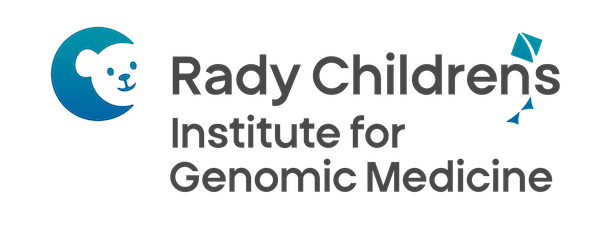The contribution of de novo coding mutations to meningomyelocele
Nature. 2025 Mar 26. doi: 10.1038/s41586-025-08676-x. Online ahead of print. ABSTRACT Meningomyelocele (also known as spina bifida) is considered to be a genetically complex disease resulting from a failure of the neural tube to close. Individuals with meningomyelocele display neuromotor disability and frequent hydrocephalus, requiring ventricular shunting. A few genes have been proposed to contribute […]
The growing research toolbox for SLC13A5 citrate transporter disorder: a rare disease with animal models, cell lines, an ongoing Natural History Study and an engaged patient advocacy organization
Ther Adv Rare Dis. 2024 Jul 31;5:26330040241263972. doi: 10.1177/26330040241263972. eCollection 2024 Jan-Dec. ABSTRACT TESS Research Foundation (TESS) is a patient-led nonprofit organization seeking to understand the basic biology and clinical impact of pathogenic variants in the SLC13A5 gene. TESS aims to improve the fundamental understanding of citrate’s role in the brain, and ultimately identify treatments […]
Biallelic Loss of Function Variants in SENP7 Cause Immunodeficiency with Neurologic and Muscular Phenotypes
J Pediatr. 2024 Jul 4:114180. doi: 10.1016/j.jpeds.2024.114180. Online ahead of print. ABSTRACT To evaluate a novel candidate disease gene, we engaged international collaborators and identified rare, biallelic, specifically homozygous, loss of function variants in SENP7 in four children from three unrelated families presenting with neurodevelopmental abnormalities, dysmorphism, and immunodeficiency. Their clinical presentations were characterized by […]
Genome Sequencing for Diagnosing Rare Diseases
N Engl J Med. 2024 Jun 6;390(21):1985-1997. doi: 10.1056/NEJMoa2314761. ABSTRACT BACKGROUND: Genetic variants that cause rare disorders may remain elusive even after expansive testing, such as exome sequencing. The diagnostic yield of genome sequencing, particularly after a negative evaluation, remains poorly defined. METHODS: We sequenced and analyzed the genomes of families with diverse phenotypes who […]
Advancing access to genome sequencing for rare genetic disorders: recent progress and call to action
NPJ Genom Med. 2024 Mar 27;9(1):23. doi: 10.1038/s41525-024-00410-2. NO ABSTRACT PMID:38538605 | DOI:10.1038/s41525-024-00410-2
Evidence review and considerations for use of first line genome sequencing to diagnose rare genetic disorders
NPJ Genom Med. 2024 Feb 26;9(1):15. doi: 10.1038/s41525-024-00396-x. ABSTRACT Early use of genome sequencing (GS) in the diagnostic odyssey can reduce suffering and improve care, but questions remain about which patient populations are most amenable to GS as a first-line diagnostic test. To address this, the Medical Genome Initiative conducted a literature review to identify […]
Joint, multifaceted genomic analysis enables diagnosis of diverse, ultra-rare monogenic presentations
bioRxiv [Preprint]. 2024 Feb 16:2024.02.13.580158. doi: 10.1101/2024.02.13.580158. ABSTRACT Genomics for rare disease diagnosis has advanced at a rapid pace due to our ability to perform “N-of-1” analyses on individual patients. The increasing sizes of ultra-rare, “N-of-1” disease cohorts internationally newly enables cohort-wide analyses for new discoveries, but well-calibrated statistical genetics approaches for jointly analyzing these […]
ARF1 prevents aberrant type I interferon induction by regulating STING activation and recycling
Nat Commun. 2023 Nov 1;14(1):6770. doi: 10.1038/s41467-023-42150-4. ABSTRACT Type I interferon (IFN) signalling is tightly controlled. Upon recognition of DNA by cyclic GMP-AMP synthase (cGAS), stimulator of interferon genes (STING) translocates along the endoplasmic reticulum (ER)-Golgi axis to induce IFN signalling. Termination is achieved through autophagic degradation or recycling of STING by retrograde Golgi-to-ER transport. […]
Unique Capabilities of Genome Sequencing for Rare Disease Diagnosis
medRxiv. 2023 Aug 13:2023.08.08.23293829. doi: 10.1101/2023.08.08.23293829. Preprint. ABSTRACT BACKGROUND: Causal variants underlying rare disorders may remain elusive even after expansive gene panels or exome sequencing (ES). Clinicians and researchers may then turn to genome sequencing (GS), though the added value of this technique and its optimal use remain poorly defined. We therefore investigated the advantages […]
Isolated Absent Aortic Valves: A Unique Fetal Case With Echocardiographic, Pathologic, and Genetic Correlation
JACC Case Rep. 2023 Feb 22;11:101790. doi: 10.1016/j.jaccas.2023.101790. eCollection 2023 Apr 5. ABSTRACT We present a 22-week fetus with isolated absent aortic valve and inverse circular shunt. The pregnancy was interrupted. Here, echocardiography and pathology images demonstrate this rare entity. Whole genome sequencing revealed a potentially disease-causing variant in the APC gene. Whole genome sequencing […]
